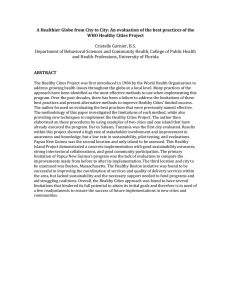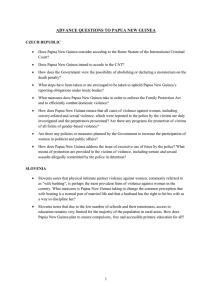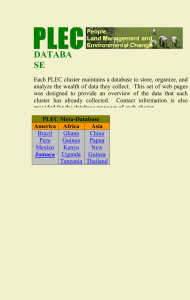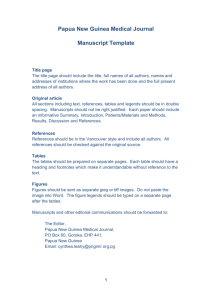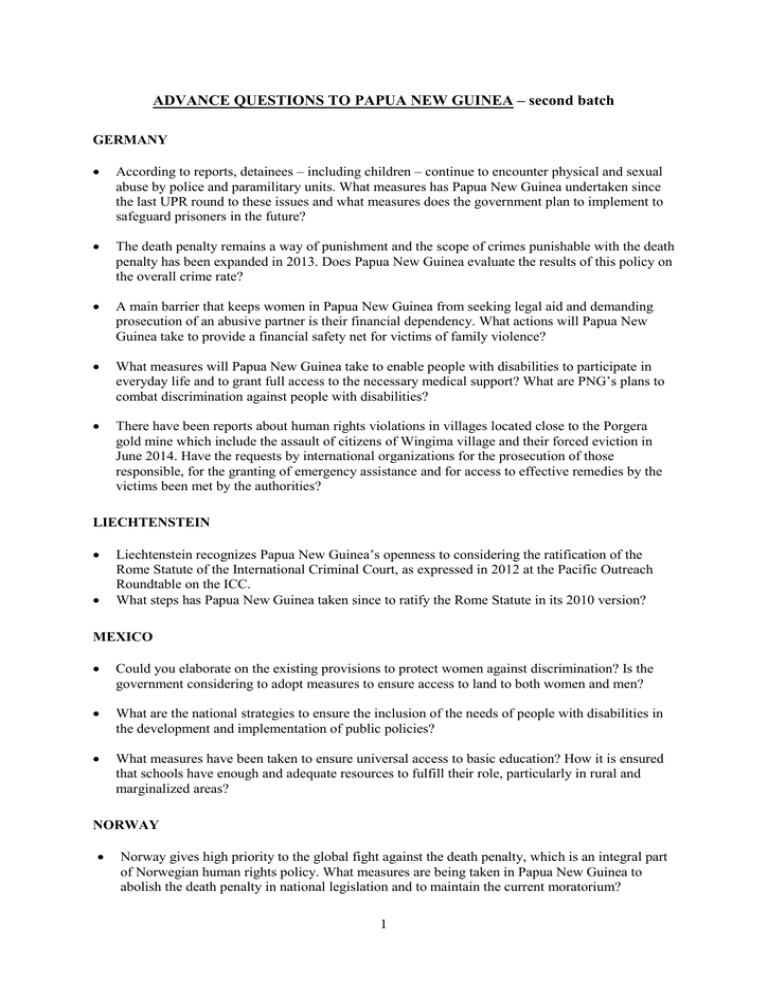
ADVANCE QUESTIONS TO PAPUA NEW GUINEA – second batch
GERMANY
According to reports, detainees – including children – continue to encounter physical and sexual
abuse by police and paramilitary units. What measures has Papua New Guinea undertaken since
the last UPR round to these issues and what measures does the government plan to implement to
safeguard prisoners in the future?
The death penalty remains a way of punishment and the scope of crimes punishable with the death
penalty has been expanded in 2013. Does Papua New Guinea evaluate the results of this policy on
the overall crime rate?
A main barrier that keeps women in Papua New Guinea from seeking legal aid and demanding
prosecution of an abusive partner is their financial dependency. What actions will Papua New
Guinea take to provide a financial safety net for victims of family violence?
What measures will Papua New Guinea take to enable people with disabilities to participate in
everyday life and to grant full access to the necessary medical support? What are PNG’s plans to
combat discrimination against people with disabilities?
There have been reports about human rights violations in villages located close to the Porgera
gold mine which include the assault of citizens of Wingima village and their forced eviction in
June 2014. Have the requests by international organizations for the prosecution of those
responsible, for the granting of emergency assistance and for access to effective remedies by the
victims been met by the authorities?
LIECHTENSTEIN
Liechtenstein recognizes Papua New Guinea’s openness to considering the ratification of the
Rome Statute of the International Criminal Court, as expressed in 2012 at the Pacific Outreach
Roundtable on the ICC.
What steps has Papua New Guinea taken since to ratify the Rome Statute in its 2010 version?
MEXICO
Could you elaborate on the existing provisions to protect women against discrimination? Is the
government considering to adopt measures to ensure access to land to both women and men?
What are the national strategies to ensure the inclusion of the needs of people with disabilities in
the development and implementation of public policies?
What measures have been taken to ensure universal access to basic education? How it is ensured
that schools have enough and adequate resources to fulfill their role, particularly in rural and
marginalized areas?
NORWAY
Norway gives high priority to the global fight against the death penalty, which is an integral part
of Norwegian human rights policy. What measures are being taken in Papua New Guinea to
abolish the death penalty in national legislation and to maintain the current moratorium?
1
SPAIN
What actions haven taken to apply the Family Protection Act (2013) in the fight against genderbased violence?
Does Papua New Guinea count on any kind of system to register acts of rape in the country on a
periodic basis? If so, in how many cases have the aggressors been prosecuted? Have the victims
had proper access to justice and adequate attention by security forces and public institutions?
Is Papua New Guinea ready to amend the Criminal Code in order to decriminalize consensual
same-sex relations between adults?
Could Papua New Guinea kindly explain how do its authorities ensure that the reception of
asylum seekers practiced in the country is in compliance with international standards and human
rights obligations?
Will Papua New Guinea stablish a national human rights institution, in accordance with the Paris
Principles, as accepted in the last UPR session in May 2011?
How is Papua New Guinea coping with the high level of violence encountered by children, both
at home and at schools?
Has Papua New Guinea raised public awareness-raising against sorcery and witchcraft related
crimes and enforced legal action against those committing or inciting such atrocities?
SWEDEN
How will the Government of Papua New Guinea work on securing effective implementation of
the Family Protection Act?
How will the Government of Papua New Guinea work to ensure access to justice for victims of
violence, including domestic violence and sexual and gender based violence?
Would the Government of Papua New Guinea be ready to amend its anti-discrimination
legislation to include the prohibition of discrimination on the grounds of sexual orientation?
What is the Government of Papua New Guinea doing to facilitate the resettlement of refugees and
their integration into society?
Noting that Papua New Guinea has not carried out any executions in more than 60 years, does the
government of Papua New Guinea intend to institute a formal moratorium on executions with a
view to abolish the death penalty?
SWITZERLAND
Where does Papua New Guinea stand regarding the accession to the Optional Protocol to the
Convention on the rights of the Child on the involvement of children in armed conflict of 25 May
2000?
Where does Papua New Guinea stand regarding the possibility to adhere to the Second Optional
Protocol to the International Covenant on Civil and Political Rights aiming at the abolition of the
death penalty?
2
What does Papua New Guinea intend to do in order to ensure a treatment of asylum seekers in
conformity with human rights law?
UNITED STATES OF AMERICA
What is the government doing to enhance the capacity of the police to address violence against
women, including sexual violence?
3

